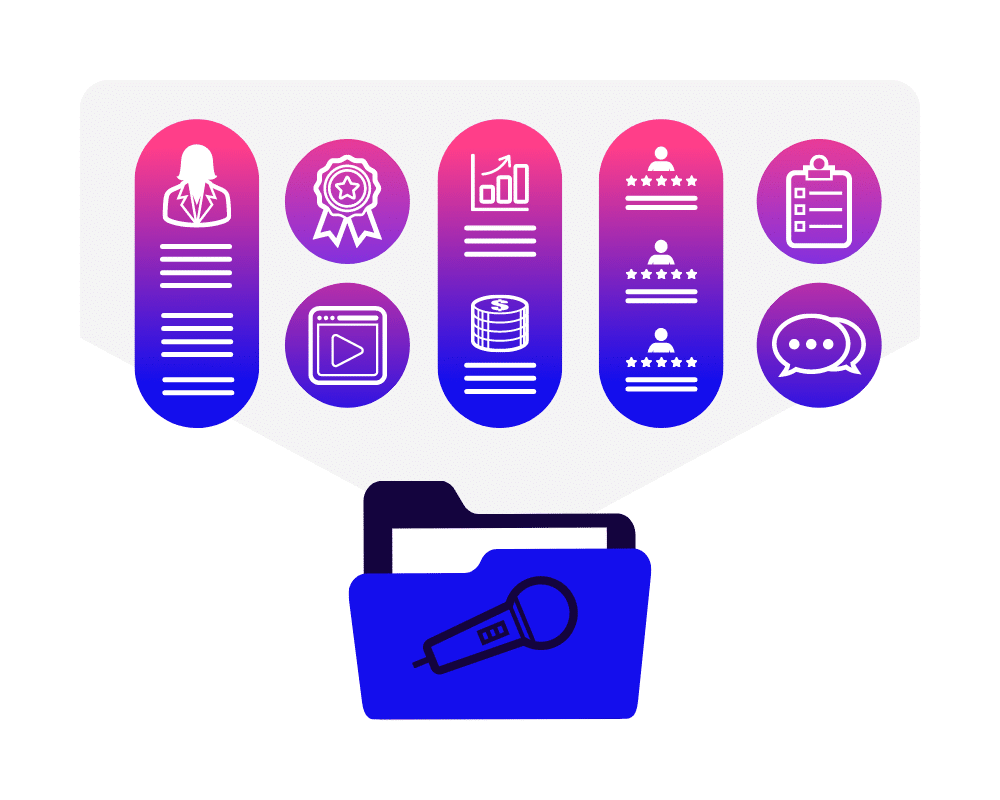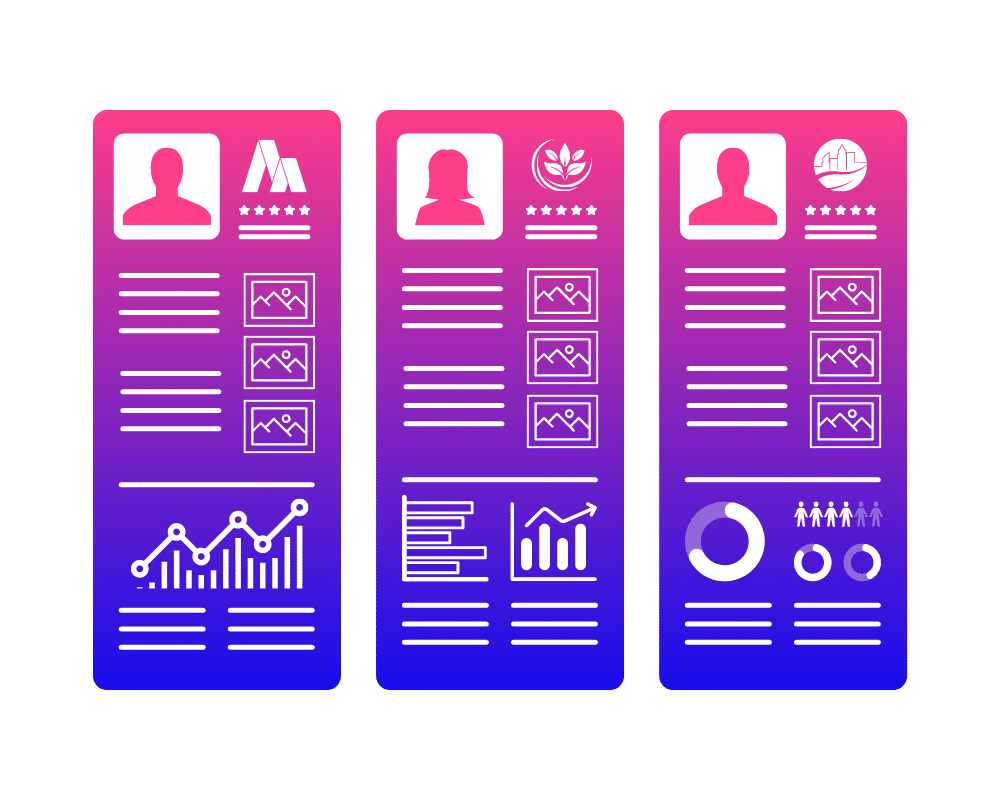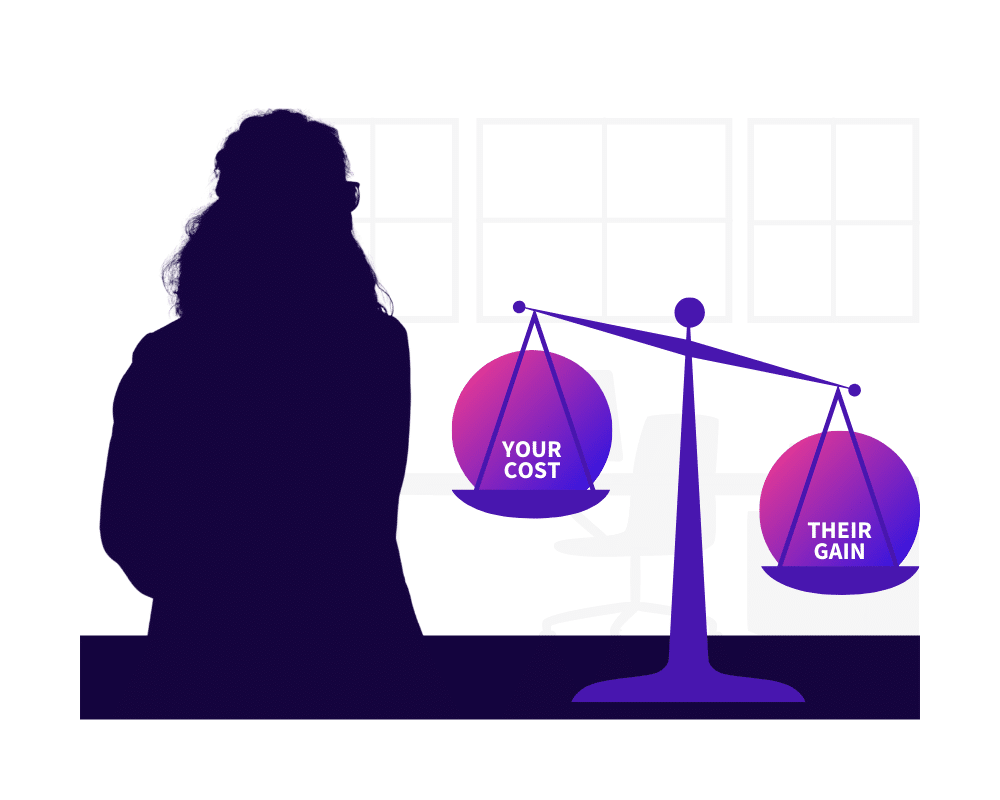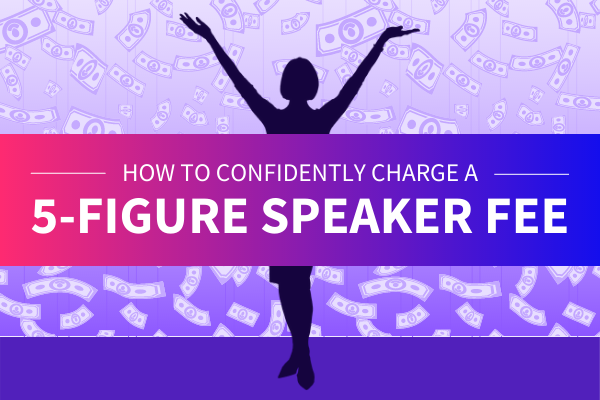Compared to many service-oriented industries, the world of professional speaking poses a unique challenge. Although you can become a speaker from anywhere in the world, with any level of professional or personal experience, and with any message, the vast majority of speakers face the same problem throughout their career: how to charge the highest speaker fee possible.
Obviously, there are many factors that contribute to your speaking fees, such as your existing reputation in your focus industry(ies) and the complexity of your programs. There’s also the “celebrity factor” of bringing in bigger audiences – and, by extension, bigger speaking fees – simply because you’re well-known locally or Internet famous.
Setting aside these exceptional elements, this quick and simple guide is focused on concrete steps you can take to boost your program prices. From getting organized to getting paid what you’re worth, these five things don’t depend on your time in the speaking industry or your sales background. They are, however, time-tested by hundreds of thousands of speakers around the world. So, even if you’re starting from scratch today, you can jump to a 5-figure speaker fee in no time.
Before we dive in, keep in mind that the following strategies don’t guarantee success without a solid sales process as a foundation. For more information about building such a sales process, check out our ultimate guide to speaker sales first. 👍
Research potential clients before reaching out.
First, before contacting potential clients, do your homework regarding their event. Even if you’re pitching an event organizer in an industry with which you have extensive experience, every event will have its own objectives and obstacles. Additionally, most planners are juggling a massive number of tasks, making it imperative that you don’t waste any of their time – or yours – after reaching out.

To do this and find as much background information as possible, there are a few details to keep in mind, starting with the organization hosting the event. Regardless of the host and even if it’s never stated outright, every event springs from a need. For example, if the host is a well-established company, maybe they’re navigating a merger or acquisition. If they’re a new company, maybe they’re trying to start off on the right foot and establish a positive company culture. Either way, finding out as much as you can about the company at hand also allows you to predict their goals. From there, you can position yourself as the solution to help them meet said goals, making you a frontrunner for their event from your first conversation.
Similarly, the more knowledgeable you are about the event itself, the better you can argue you’re a good fit. This includes information such as who will be speaking, where the event will place, what people will be in the audience (meaning their profession, age, etc.), and what changes or problems are affecting the audience most.
Put simply, unless you have a long-standing relationship with a potential client, research is key. Not only will it equip you with knowledge to use in sales conversations. It will also present you as a dedicated, detail-oriented partner, allowing you to charge a higher speaker fee.
Invest in your brand and speaking materials.
Speaking of pre-outreach preparation, the next step to remember before contacting leads is investing in everything you’ll share with them. As silly as it sounds, planning for sales calls is like measuring a dinner’s ingredients before you start cooking. As any chef will tell you, the higher quality the ingredients and the more organized you are beforehand, the better tasting and looking the final meal will be. Likewise, the higher quality your speaking materials, the more polished and professional you’ll appear in your sales pitch. This is especially important if you’re meeting an event planner for the first time.

Although your list of speaking materials may vary depending on your ideal audience, the most fundamental speaker “packet” should include:
- Photos: Headshots at a minimum and optional photos of you speaking
- Program Descriptions: Include the ideal audience, what they learn, and if each comes with add-on products (book copies, for example)
- Your Professional Biography: Full, short (~100 words), and super short (~50 words) versions of your bio
- Your Speaker Kit: Combines the above four items into a single PDF
- A List of A/V Requirements: The tools you need to deliver your presentation (HDMI cable, laptop, lapel microphone, etc.)
- Your Introduction: A quick script for the emcee or presenter to use when they introduce you on stage during the event
Each of these materials should be branded to match your speaking business. They should also be easily accessible, should a potential client ask for them. That way, if your speaker fee is higher than those of your competitors, you’ll be the easiest to work with. Plus, you’ll shine by comparison visually, too.
Highlight your past clients’ successes (and include data).
After you’ve connected with a potential client, the next step is a deeper conversation (i.e. the “money conversation”). In this conversation, your goal isn’t simply to promote your services (and products, when applicable). It’s ultimately to prove your worth, both for the day of the event and in the months that will follow. In this way, from the client’s perspective, your speaker fee looks like a small price to pay for such a big impact.

That said, as you might expect, telling anyone how awesome you are isn’t likely to win them over. What is likely to do so is evidence from your past clients, starting with testimonials. As an established speaker, the best testimonials are ones from either (A) noteworthy clients in your industry or (B) past clients that your prospective client already knows and trusts. On the other hand, if you’re a new speaker, remember that quality matters more than quantity. Even if you don’t have a ton of reviews to choose from, find the ones that highlight your skills. Then, showcase them on your speaking materials, website, and other publicly available resources for event organizers.
After selecting a few reviews, it’s time to build the cases behind those reviews. This means collecting evidence of the positive impact you had during and after their event and can include changes like increased employee engagement, higher revenue the following quarter, or better customer satisfaction ratings or NPS scores.
Whatever data you can share, the idea is to provide proof of your past successes. After all, when it comes to defending a high speaker fee, few things are as powerful as cold, hard facts.
Charge based on their budget and their net gain.
Another important note to remember is to pitch based on the potential client’s net gain from the event. For many speakers, their first impulse is to shoot low. From many of our clients, for instance, we hear things like, “Well, I don’t want to pitch too high and scare them off” or “I don’t want to charge them a lot and end up with someone that feels like I scammed them.”

Fortunately, both of these fears – and, truthfully, many common sales-related fears among speakers – come down to value. In every discussion with event organizers, don’t think about your fee as a one-time price tag that you’re trying to persuade them to take. Instead, think of it as an investment in the future of their organization even after the event is over.
For example, if your goal is to book one event, how will you ensure your part in it exceeds expectations? If your goal is a long-term partnership, how can you support them in the long run? Are you able to come back for consulting, for example, or workshops if they need help implementing your message post-keynote? In other words, how can you help them build their initial investment (the event itself) into a bigger, overwhelmingly positive change in their organization?
All of these questions are important to ask yourself ahead of the “money conversation” with event organizers. However, they’re also key to building a healthy mindset about your speaker fee. Remember: You are an expert first and a speaker second. So, when someone hires you for an event, they’re paying for your experience, hard work, and time in addition to the insights in your presentation. Don’t undersell yourself!
Showcase your dedication to improvement and service.
Finally, whenever negotiating your speaker fee with an event organizer, strive to put others first in every conversation. As mentioned throughout this guide, one of the biggest “green flags” is being easy to work with. In fact, according to PwC’s Future of Customer Experience Survey, 73% of people cite experience as an important factor in making a purchase. Another 42% are willing to pay more when they know a positive experience is guaranteed.

When speaking with event organizers, the same is true. Sure, there will be times where a potential client just isn’t a good fit, and they don’t hire you. But in most cases, organizers are looking for ROI (in time and/or money) and a pleasant experience. If you can show you’re dedicated to making that happen, they’ll be hard-pressed to say “no.”
With these tips in mind, hopefully, your next “money conversation” ends not only with “yes” but also a higher fee. For more tips and tricks to increase your fees, check out our previous guides, “7 Steps To Take If You Want To Charge Higher Speaking Fees” and “The Ultimate Guide To Speaker Fees.”
Additionally, for hands-on sales strategies specific to your speaking business, we’re here to help! As a team, we have more than a decade of experience in the speaking industry, not to mention a collective 20+ years in sales, and there’s nothing we love more than sharing that knowledge with others. So, if you’re ready to build your business into a streamlined sales engine, get in touch! We’ll (metaphorically) leave the light on for ‘ya. 😊





